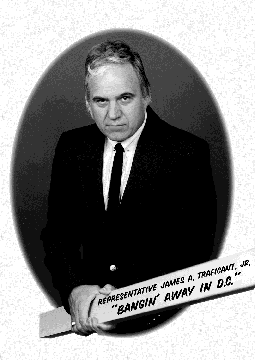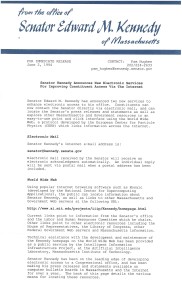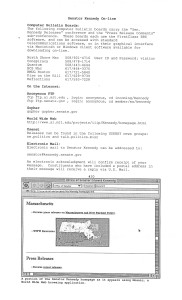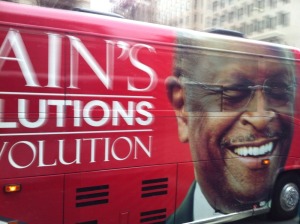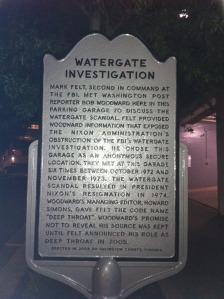This Salsa Sucks!
Coca-Cola paved the way. When a company launches a new version of their product, and it sucks, they sheepishly re-offer the original version and call it “Classic”, as Coca-Cola did 31 years ago after customer backlash following the launch of New Coke.
I recently learned that Salsa has done the same with their online advocacy tools.
I’m not new to Salsa. I actually worked for a competing vendor, NGP VAN, for seven years. Since then, I have had extensive opportunities to use Salsa’s tools. I learned through that experience that they didn’t suck. Salsa had strengths and weaknesses when compared against what I was familiar with, but I came to learn and appreciate what was good about them, and to use them effectively.
When I recently started in a new job and sought online advocacy tools to use, I did a quick review of alternatives, but lazily went with Salsa as it was what I had used most recently. I had no reason to suspect that I was purchasing something different than the Salsa tools familiar to me. Their website describes simply “Online Advocacy Software”. So when I signed a contract purchasing “SalsaEngage”, I expected I was buying the familiar tools that I told their sales rep I had used for years. When I first launched and began to explore them, I found a different looking interface, but just assumed they had been upgraded (I’ve looked at that ‘I want the new interface’ login screen checkbox for a long time already).
Instead, over the course of two months, I found that SalsaEngage was a completely new product. And I found it to suck. From the very start, the most fundamental first step of importing new contact records and attempting to assign them to a group code (now called a segment) proved ridiculously challenging. Attempts to learn how to do this from Salsa’s support only compounded my frustration… “Yes, I have already read the online documentation that it took you two days to refer me to, and No, it still doesn’t answer the question I asked.”
That was only the beginning. I soon learned that the only batch option for making edits to multiple records was to DELETE THEM ALL (maybe adding a group code, or updating some other common field would be useful instead of deleting them all?). I also found that the reporting on A/B testing of emails in one view didn’t match the results shown in another view of Salsa’s interface (who clicked? who unsubscribed? If Salsa Engage has these answers, I couldn’t find them.)
My patience exhausted, I informed Salsa that I wished to terminate our contract and requested a refund for the remaining 10 months of unused service for the year that we had prepaid. And I received the following reply,
“Thank you for your message. Yes, we did receive your message and I was speaking with my supervisor before getting back to you. SalsaEngage is a stripped down, very on-rails tools that we offer for users who are not looking for a ton of customization or flexibility with their email, advocacy, and fundraising needs. After reviewing your concerns and frustrations, I believe that SalsaClassic would be a much better fit for you and your organization, and would be more than happy to setup a time to show you a demo of the tool to ensure that it can and will meet your needs. What’s more, after speaking to my supervisor, I can offer you SalsaClassic at the same price you were paying for SalsaEngage, which is at a discount.”
And there it was, Classic Coke! For the first time a distinction was made between the product I was given, SalsaEngage, and the product I believed I had purchased, Salsa “Classic”. Despite the fact that I had described myself as an experienced Salsa user, there had been no previous mention that I was buying a “stripped down” version of the tools I expected. Would I now like to receive what I had originally asked for? My response was simply, “No! Thanks for the offer, but NO! It’s too late.” To which I received the below reply from my Salsa “Client Success Agent”:
I completely understand the frustrations that you experienced and I want to apologize again that you were not shown the SalsaClassic tool initially when you were looking at our services. However, after speaking with the upper management team, because your organization signed a contract with Salsa for 12 months of service, we are not going to be able to cancel your account. We can, however, offer you the SalsaClassic platform, at the rate you’re currently paying for SalsaEngage – and, I got approval for us to credit your organization for the two months that you spent on SalsaEngage that you feel like was a waste.
Really Salsa? Is this how you do business?
Contractually, Salsa may be able enforce our 12-month contract. Ethically, they misled me into purchasing a product that was not what I had every reason to expect I was getting. Then only after I had wasted my time learning how badly SalsaEngage sucks, offered me their never before mentioned “Classic” version.
I let my Salsa “Client Success Agent” know that I wanted to speak with someone in their “upper management”, and after a week of silence, I repeated that request. I was contacted by Salsa’s “Director of Client Success”, and made clear that the only successful outcome for me would be a terminated contract with a refund of the unused amount. He said that would be a “heavy lift”, but that he’d see what he can do. That was a month ago, and I’ve heard nothing back.
I wish Salsa had done the right thing by offering me an apology and a refund. They chose instead to hold me hostage as a customer, bound either to an inadequate product or an outdated one. They can do that. My responsibility to our community is to share this story of my experience as a cautionary tale.
Something’s gone very wrong in the Labs. And I want you to know, in my humble opinion, this Salsa Sucks.


